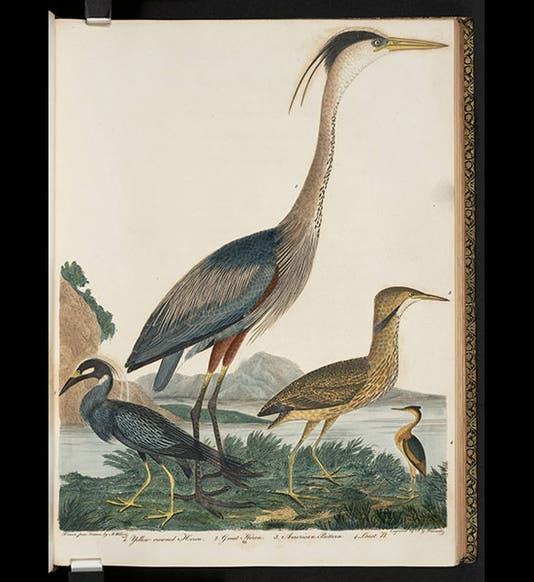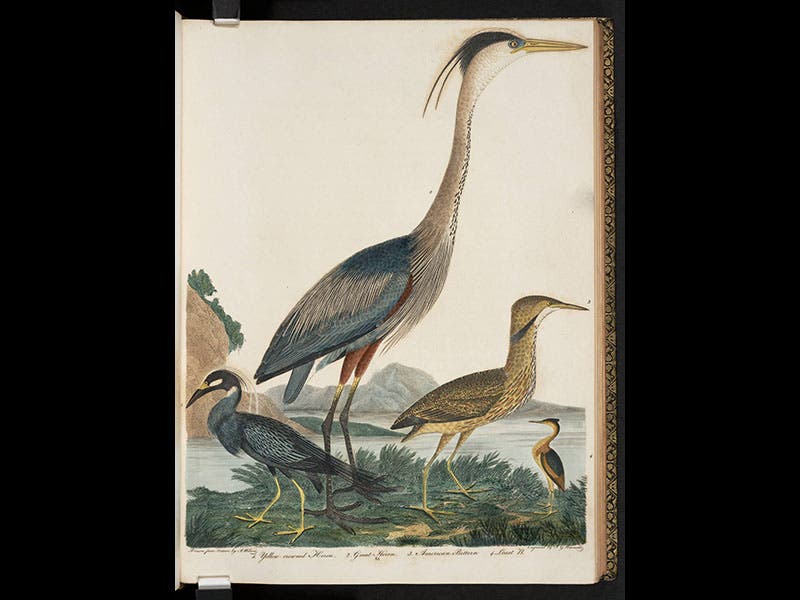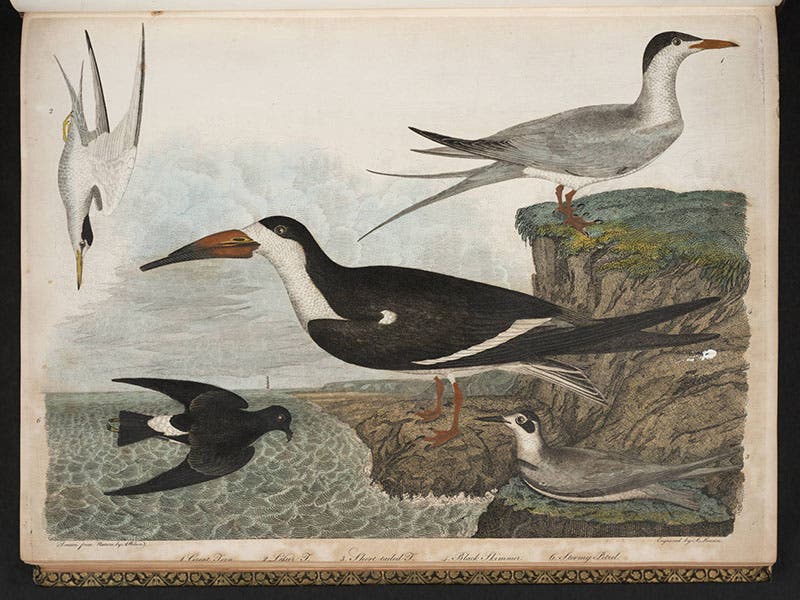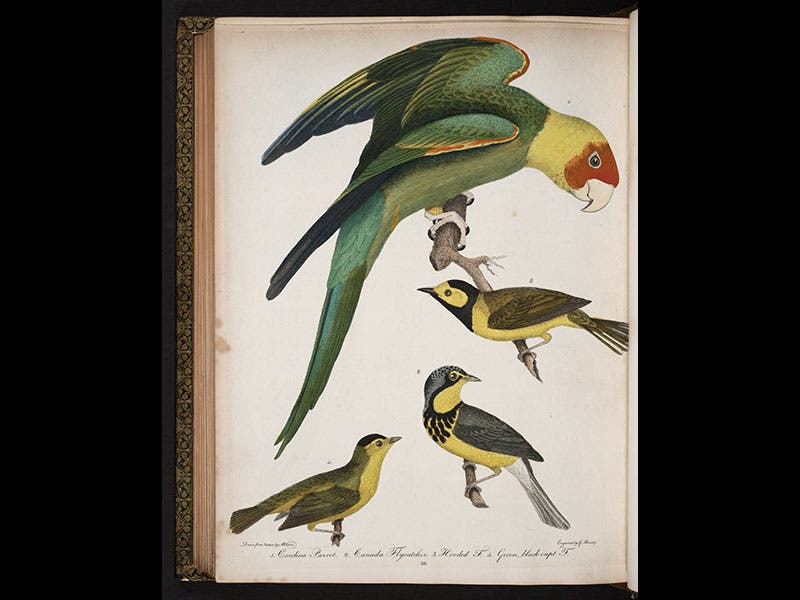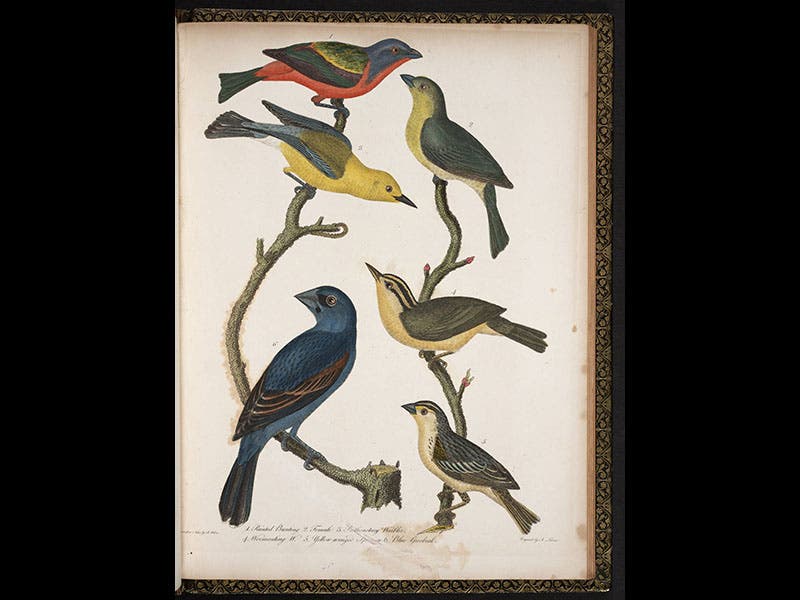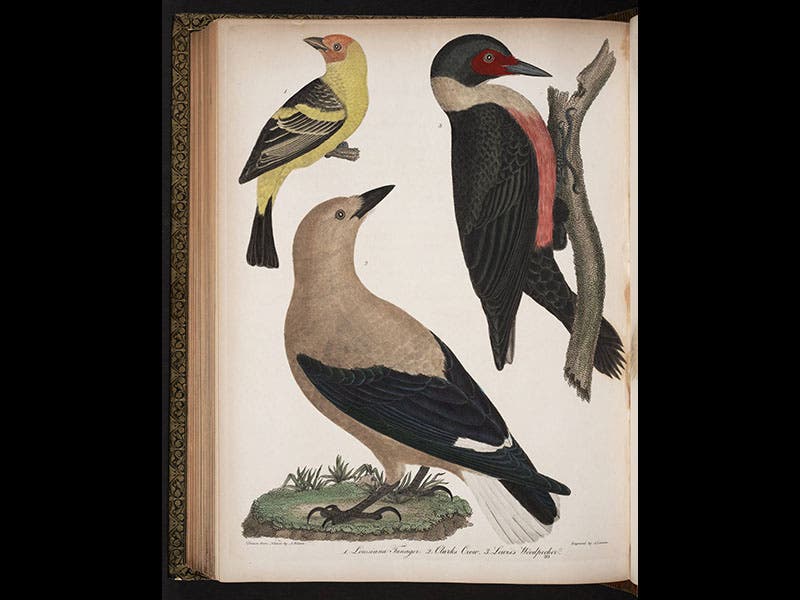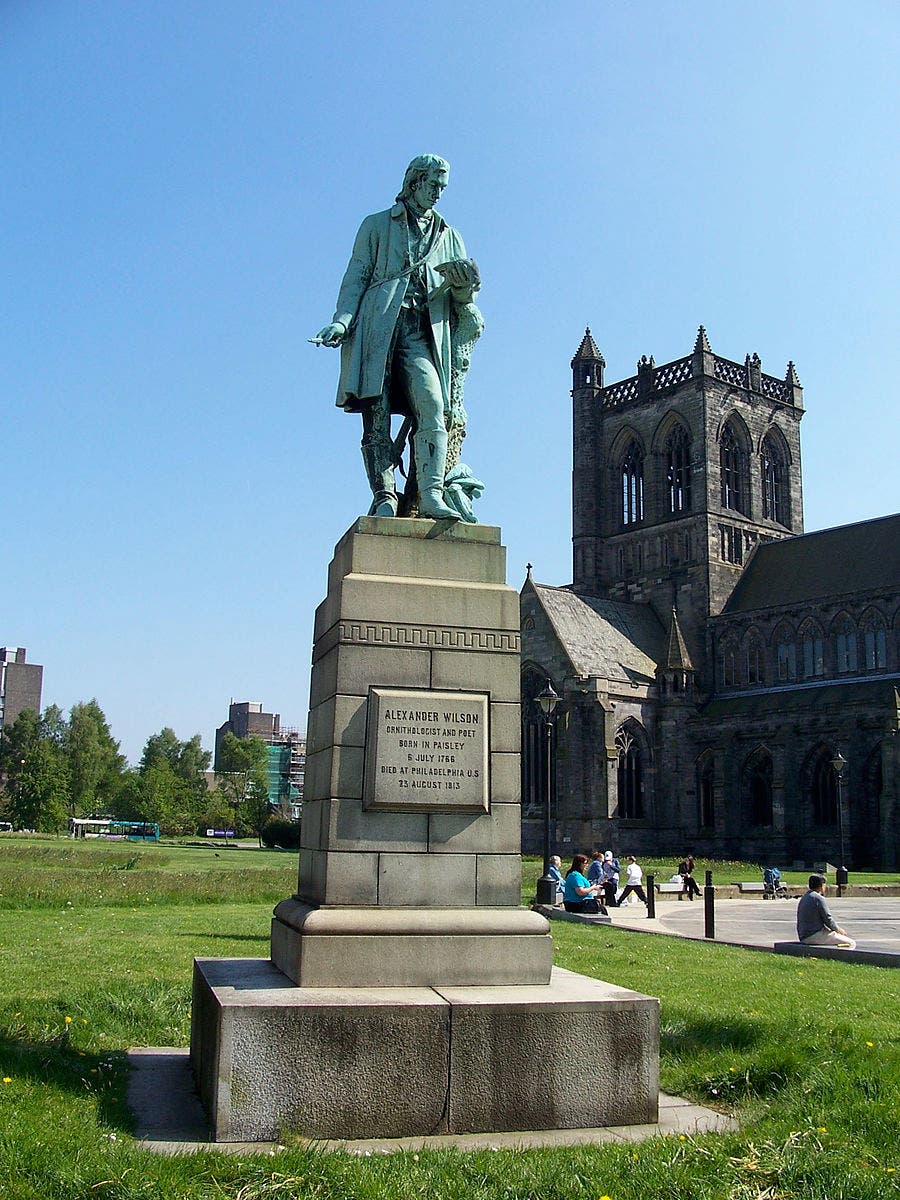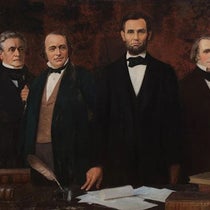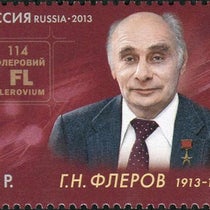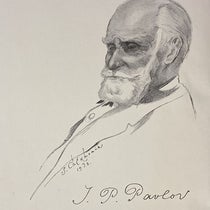Scientist of the Day - Alexander Wilson
Alexander Wilson, an American ornithologist, was born July 6, 1766, in Scotland. Wilson came to the fledgling United States in 1794, working as a schoolteacher in Pennsylvania, where he became interested in birds. He taught himself to draw and soon amassed a portfolio of paintings. Between 1802 and 1808 he travelled the country, seeking subscribers and new birds, and in 1808 the first volume of his American Ornithology was published. It would be completed in nine volumes, the last volume finished just after his death in 1813. One of the many novelties of his work is the first depiction of Lewis's woodpecker and Clark's nutcracker, two new species discovered by Lewis and Clark out west. Wilson drew these from the very specimens brought back from the expedition, which were deposited in Peale's Museum in Philadelphia. We have the complete set of the American Ornithology in our History of Science Collection.
The first five images above are all taken from the American Ornithology and depict, among others, the great heron (first image), a black skimmer (second image), the now-extinct Carolina parakeet (third image), a painted bunting (fourth image), and two birds named after William Clark and Meriwether Lewis (fifth image). The last image shows a statue of Wilson, erected outside of Paisley Abbey in his native Scotland.
Dr. William B. Ashworth, Jr., Consultant for the History of Science, Linda Hall Library and Associate Professor, Department of History, University of Missouri-Kansas City. Comments or corrections are welcome; please direct to ashworthw@umkc.edu.

